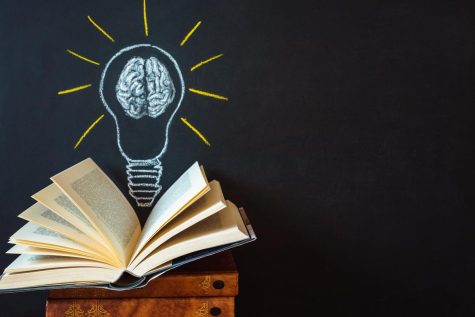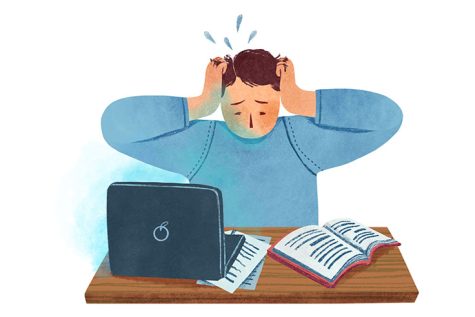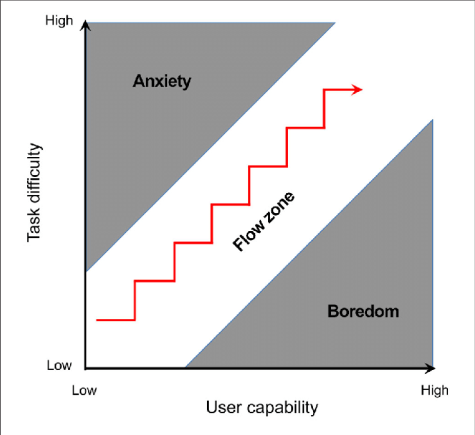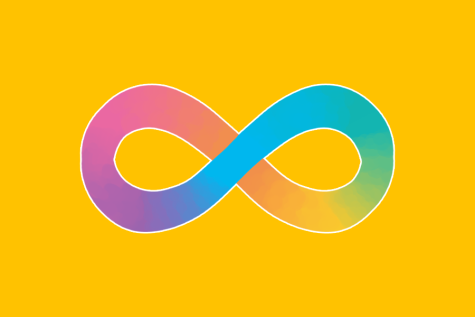How To Focus in 2023: A Guide to Concentration in a World Without Restraint
Our world is ever changing, due in large part to technological advancement and, more specifically, the rise of the Internet. As the years pass, it seems we inch ever closer to the surreal utopias only ever described in fiction; the past three decades especially have been a time of unprecedented evolution and innovation for humankind, especially regarding online connection and communication. Global corporations such as Apple, Microsoft, and Amazon have revolutionized and streamlined nearly every conceivable function to the point where all human knowledge and entertainment can fit in the palm of your hand.
With the sheer volume of information available to us at any given time, it is difficult, and indeed discouraged, to fixate on any one piece of media for longer than a few seconds; watching a few dozen Shorts on YouTube or scrolling Twitter for the latest political scandals are much easier and faster than reading a single dense chapter in your textbook. In prior decades, it was commonplace to spend a consecutive 30 minutes or more on, for instance, reading, and a certain commitment of time and effort was expected in order to properly enjoy oneself.
But in 2023, that commitment is less and less common because there are other common sources of entertainment that trigger much more dopamine, the neurotransmitter associated with pleasure, in a much shorter amount of time. A TikTok video, for example, lasts on average 30 seconds, meaning you only have to fixate on it for a maximum of 30 seconds before moving onto the next piece of entertainment; it is spontaneous, it is quick, and above all, it is convenient, much more convenient than sifting through pages upon pages of monotonous text. While this frantic race to shove as much content into our brains as possible can have alarming repercussions such as phone addiction, the Internet is, for the most part, heralded as the pinnacle of entertainment today, and it seems as if its influence will only grow over time.

Many popular sites today, including YouTube and Twitter, are continuing to incorporate this philosophy of “faster and freer” into their algorithms, and that seems to be what we want; after all, we keep clicking, enabling these platforms to continue expanding. But the detrimental effects of such sporadic media are immediately apparent in our declining attention span, on the screen and off. Dr. Gloria Mark, professor at UC Irvine, found that the average American’s attention span had dropped from roughly 2.5 minutes (150 seconds) in 2004 to approximately 47 seconds today, due in large part to the media we consume not mandating willpower or focus as it once did. It is clear that modern media has dramatically impaired humankind’s capacity for focus, a crucial aspect of everything from work ethic to social life, and seeing as our media is only getting faster, it seems as if the era of attention is falling ever farther behind us. This unstable entertainment can also exacerbate many of today’s common mental conditions such as burnout, anxiety, and depression; when nonstop media available at one’s own discretion enters the equation, these illnesses, all of which are debilitating in their own right, only accelerate in their unrelenting downward spiral.
So, is that it? Are we doomed to fall victim to our insatiable need for instant gratification as corporate entities weaponize the distribution of pleasure against our rapidly deteriorating concentration? Well, not exactly; as always, there are cogs turning quietly within your mind, and a comprehension of how these cogs function illuminates a multitude of strategies that can counteract the detrimental effects of modern media, strategies that are ever more critical in a society that cannot stop speeding up in its quest for perfectly chaotic entertainment. Here are just three psychologically sound strategies to improve your concentration, the research behind them, what other benefits they may offer, and how you can incorporate them into your everyday life, whether through habit, environment, or mindset.
Reading

Books may be considered archaic technology at this point, but they still hold many benefits that are largely absent in today’s entertainment. When you read, your prefrontal cortex, which is associated with logic, reasoning, impulse-control, and focus, activates, in effect allowing you to not only concentrate on the task at hand but, in the case of reading, entirely comprehend it. By stimulating your prefrontal cortex through reading, then, you train your mind to fixate on what you assign to it, as well as enhance your ability to act reasonably, recognize patterns, judge situations, and generate informed responses, all essential abilities in today’s society; the prefrontal cortex is, after all, designed by evolution to allow for deeper, more abstract thought.
Silencing your phone and sitting down with a good read for a simple half hour will do wonders for your attention span; even without required reading, I implore you to try and read in your spare time, as both an entertaining and constructive use of your afternoon. Reading also comes with many other benefits, including but not limited to vocabulary sophistication as seen in left hemisphere activity, reduced stress via lowered heart rate, enhanced empathy through mirror neurons as we imagine what is happening on the page, and even improved working memory, which stores, encodes, and retrieves information relevant to the task at hand. All it takes is a trip to the library to find the right book for you, and you may find yourself completely engrossed in a captivating story. I recently read Mary Shelley’s Frankenstein, for instance, and I was absolutely captivated by the rich language and vivid imagery; I couldn’t stop thinking about Victor Frankenstein’s hubris in becoming “the modern Prometheus,” the monster’s innate empathy and descent into apathy, and the tragedies that befell the Frankenstein family as direct results of one man and his war against the consequences of his actions. It’s a bit of a slow burn, but I would recommend it to any fans of gothic horror, vivid storytelling, or just good writing. But I’m getting off topic.
Finding the right book may be difficult at first, so I suggest you explore; try books of all genres, eras, and backgrounds, starting with your interests. If you find yourself interested in the conditions of World War II, try picking up a historical fiction story such as Traitor by Amanda McCrina; if you find concepts like space exploration and extraterrestrial life fascinating, sprawling science fiction worlds such as Frank Herbert’s Dune could be for you; if you like contemplating the collapse of society as we know it, give dystopian novels such as Brave New World by Alduous Huxley a shot. I truly believe there is a book for everyone; it’s simply a matter of knowing where to look, and once you’ve found it, keeping a consistent reading schedule so as not to lose interest. And, as discussed earlier, your brain will thank you for nourishing it; attention span is but one aspect among many strengthened by losing yourself in a good book. Reading is, admittedly, a habitual strategy; it requires time, dedication, and consistency to maintain. While it may be difficult to first immerse yourself in a story, however, the results are well worth the investment, and you will find yourself thankful that you picked this hobby up when it comes time to cram for that next deadline.
Nature

Have you ever wondered why large business headquarters are so often designed with massive windows, or why college campuses are so often lush with greenery, in contrast with surrounding urban areas? There are, of course, a multitude of explanations as to why these architectural quirks are so prevalent, but one of the more significant reasons is the effect of flora on our brains. We are naturally attracted to foliage, likely due to the cover and food it offered us at the dawn of our evolution, and thousands of years later we are still entranced by shades of verdant green. This evolutionary obsession with nature was coined by American biologist Edward Wilson as biophilia, and its benefits go beyond survival; numerous studies have shown that biophilia is also responsible for a variety of psychological augmentations, including decreased stress, enhanced memory capacity, and most importantly, increased concentration.
One such study was conducted in 2015 at the University of Melbourne, in which psychologist Dr. Kate Lee gave 150 university students a monotonous task to complete: pressing a key when anything except the number 3 flashes on the screen. During a 40-second break, half of the students viewed a roof with green nature adorning it, while the other half viewed an untouched, bland concrete roof. Afterward, the students were led back into the building, where they continued the mind-numbing task for another period of time; in the end, the overall performance of both groups showed that the group of students who viewed the green roof “made fewer errors and had overall better concentration.” Lee’s conclusion was that the green roof “provided a restorative experience” and “boosted the mental resources” for the drained students, and theorized that just a moment of looking at any verdant environment would boost a worker’s productivity and attentiveness. This is corroborated by a study conducted one year earlier, in 2014, by a team of psychologists at Exeter University, which found that employees’ mental fortitude and productiveness were boosted by about 15%. Given the results of these studies, along with countless others performed in both psychological and biological fields, it would not be unfair to say that nature is one of the most beneficial factors when it comes to employing, maintaining, and strengthening our attention span.
In short, greenery is associated with tranquility and serenity in our minds, likely due to evolution guiding us toward plants as a source of food; due to our fostered biophilia, a simple view of nature, even through photographs and screens, is enough to provide a sense of reinvigoration that allows us to focus on even the most mind-numbing of chores. Corporate giants such as Apple, Amazon, and Google have recognized the power of the natural world in everyday concentration, and accommodate their residents’ focus by giving them consistent access to a natural view. Similarly, sitting by a window or walking in a park will do wonders for your concentration; so long as you study in an environment lush with flora, you will find it easier to focus on your assignment with just a few sideways glances.
Flow and Stress

There is a common notion that stress in any capacity is maladaptive, and while large quantities of stress, known as distress, can indeed induce anxiety and inhibit concentration, stress is not inherently malevolent. In fact, a certain level of stress, deemed eustress, is vital to proper concentration; a task with no stress associated with it is likely not a task that is important enough to warrant completion, and attempts to do so will leave your brain meandering due to understimulation. Eustress is a key component to the elusive flow state, a frame of mind in which people become completely absorbed in their current task and work tirelessly in a perfect storm of efficacy and efficiency for long stretches of time; sometimes hours may go by before they look up and realize it’s past midnight.
The pioneer of flow state, Mihaly Csikszentmihalyi, described flow state in an interview with Wired as a mental condition in which “‘The ego falls away. Time flies. Every action, movement and thought follows inevitably from the previous one, like playing jazz. Your whole being is involved, and you’re using your skills to the utmost’” (Cherry). This is to say that flow state is a frame of mind in which you are completely and utterly absorbed in the task at hand; every function in your body and brain are bent toward achieving the goal in front of you. And, as it turns out, there are benefits to such intense fixation; Csikszentmihalyi’s innovative research and subsequent studies have proven that flow state is correlated with stronger emotion regulation, increased happiness and fulfillment, and higher levels of creativity, to name just a few.

(ResearchGate)
Many studies have been conducted on what exactly triggers flow state, but the most influential research has, again, been conducted by Csikszentmihalyi himself, who proposed the relationship between task difficulty and user capability and how a balance of both is necessary to reach the “zone”; too simple a task will not create enough stress to enter an optimal state of concentration, while too difficult a task will create too much stress to properly orient oneself. Something of a balancing act is required to reach flow state, but once you do, you will find yourself to be not only efficient but also motivated to be more efficient.
The key is to regulate your stress levels. Deal with mundane tasks first, do not procrastinate for too long, and try to break difficult assignments down into smaller chunks lest you become overwhelmed, and you may just find yourself accomplishing more than you could have ever fathomed. Managing stress, while difficult, is a more applicable and approachable method of honing your concentration; accounting for optimal stress is a purely internal affair, and may be done at your own leisure, regardless of time or environment. Thus, is it much more convenient than habitual or environmental strategies; all it requires is an appropriately engaging task and your own intrinsic motivation.
Presently, we tend to overlook the malevolence of the Internet; every negative aspect is overshadowed in our collective culture by the alluring prospect of instant gratification and entertainment, as well as social connection and convenience. Nevertheless, it is important to acknowledge the detrimental effects of streamlined, spontaneous entertainment on our attention spans, and as innovation cannot regress, we must accommodate for our rapidly decaying focus in any way we can. Reading in your free time, staying close to nature, and stressing appropriately are respectively habitual, environmental, and mental strategies that bolster your capacity for concentration and somewhat alleviate its decay at the hands of modern media. I truly do hope you’ll give at least one of these methods a try, if not for your concentration than for their own respective merits.
Works Cited
Calligeros, Marissa. “Seeing Green Boosts Your Concentration, Research Shows.” The Sydney Morning Herald, The Sydney Morning Herald, 25 May 2015, https://www.smh.com.au/technology/seeing-green-boosts-your-concentration-research-shows-20150525-gh8udh.html.
Cherry, Kendra. “How to Achieve a State of Flow.” Verywell Mind, Verywell Mind, 28 Mar. 2023, https://www.verywellmind.com/what-is-flow-2794768#:~:text=Flow%20has%20a%20number%20of,regulation%2C%20among%20other%20positive%20effects.
LaMotte, Sandee. “Your Attention Span Is Shrinking, Studies Say. Here’s How to Stay Focused.” CNN, Cable News Network, 11 Jan. 2023, https://www.cnn.com/2023/01/11/health/short-attention-span-wellness/index.html.
Rype Office team. “Office Plants – the Science behind Workplace Greenery.” Rype Office, 24 July 2021, https://www.rypeoffice.com/office-plants-the-science-behind-workplace-greenery/.
“Reading Improves Memory, Concentration and Stress.” National University, 10 Dec. 2016, https://www.ncu.edu/blog/reading-improves-memory-concentration-and-stress#gref.











